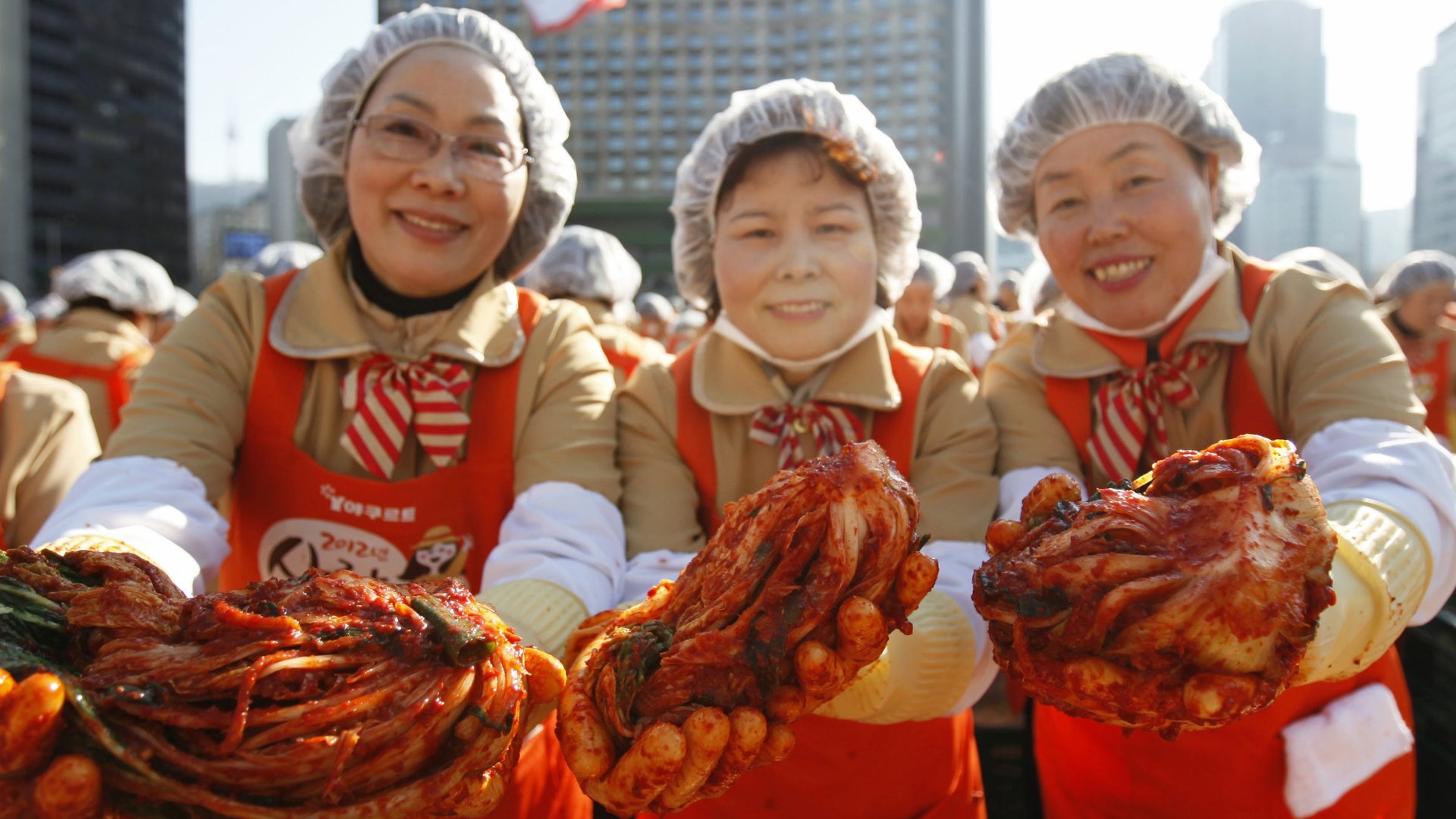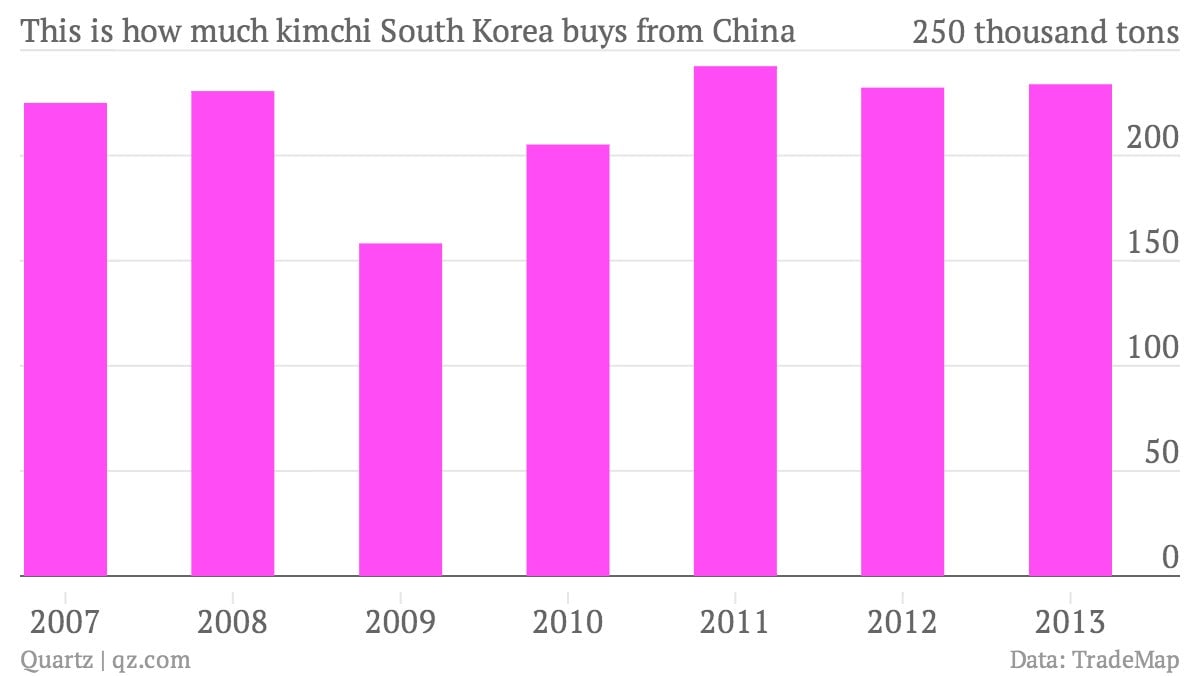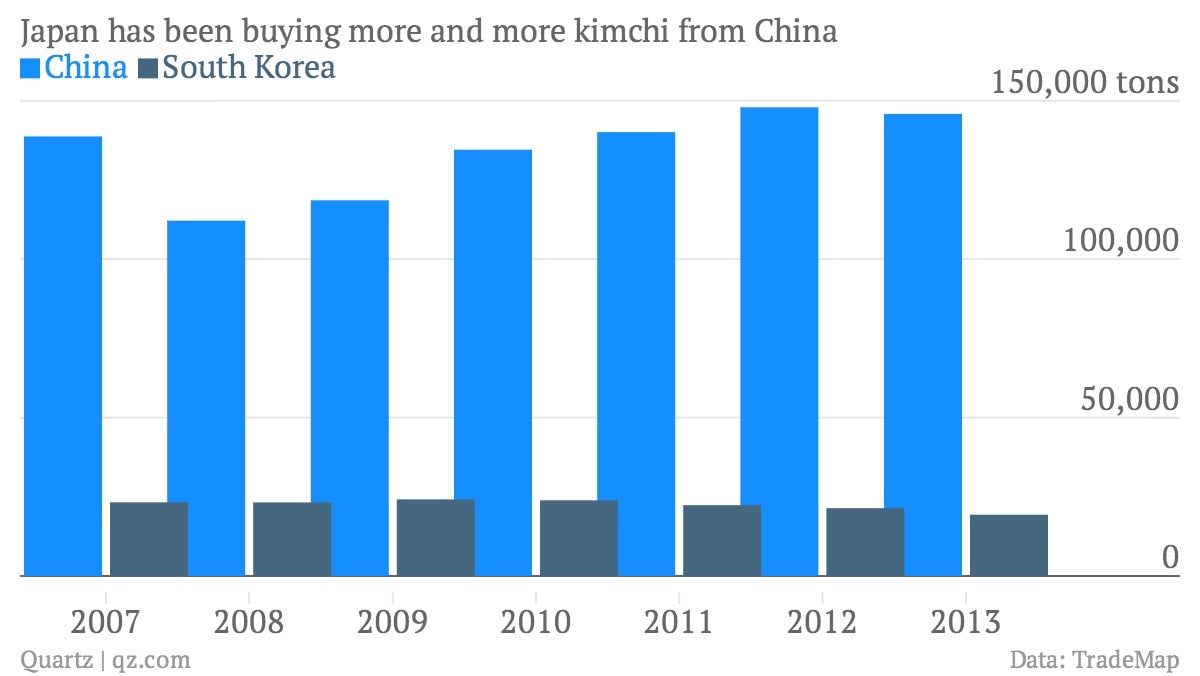The kimchi war between South Korea and China is getting extra spicy
South Korea is awfully proud of its kimchi. So proud, in fact, that it successfully lobbied for kimjang, the winter tradition of pickling the famed spicy cabbage dish, to be christened a UNESCO cultural heritage event. But as we’ve already reported, there’s not enough kimjang-ing going on to make the 2 million or so tons (1.8 million tonnes) of kimchi that Koreans consume each year—not even close.


South Korea is awfully proud of its kimchi. So proud, in fact, that it successfully lobbied for kimjang, the winter tradition of pickling the famed spicy cabbage dish, to be christened a UNESCO cultural heritage event. But as we’ve already reported, there’s not enough kimjang-ing going on to make the 2 million or so tons (1.8 million tonnes) of kimchi that Koreans consume each year—not even close.
China makes the rest: 98% of Korea’s imported kimchi—233,000 tons—comes from its neighbor, according to TradeMap. But most Koreans don’t realize that, reports the BBC. Due to a spate of past Chinese kimchi health scares—including kimchi containing parasitic eggs from human waste and way too much lead (paywall)—many Koreans won’t buy Chinese kimchi stocked in supermarkets, even though it’s cheaper than homegrown brands. But the restaurant industry sources the stuff from China and feeds it to unwitting Korean customers.
For several reasons, this isn’t sitting well with the Korean government. ”We need to raise awareness of the true value of Korean national kimchi” Lee Yong-jik, deputy director at the Ministry of Agriculture’s kimchi department, told the BBC. The government is now considering making restaurants publicly list the origins of their ingredients.

Chinese kimchi isn’t taking only Korea by storm; it’s also unseating Korean kimchi in Japan, the world’s second-biggest kimchi import market after Korea (whether the Japanese have tested for parasitic eggs remains unclear). Due in part to a recent Chinese marketing push, Japan imports of Korean kimchi fell to $66 million in 2013, from $84 million in 2012. That dragged down the value of Korea’s overall kimchi exports by nearly 17% in 2013, worsening Korea’s kimchi trade deficit.

Adding insult to injury, China has effectively blocked Korean kimchi exporters from its market, according to the Korea Times.
In the wake of its Unesco triumph, the Korean government is now pushing a radical branding overhaul of kimchi in Chinese-speaking countries, as Victor Mair, professor of Chinese literature at University of Pennsylvania, explains in Slate. The government is asking that China, Hong Kong and Taiwan retire the word paocai (which literally means “pickled vegetables” but is also used to refer to kimchi), proposing in its place xinqi (pronounced “shin-chee”), a wholly new Chinese word that only sort of sounds like kimchi and means “spicy/sour” and “mystical.”
Few vegetables have ever inspired such a flurry of international policy, particularly ones served soaked in garlic and chili. But even more than the threat of Chinese cabbage, maybe the Korean government’s kimchi PR blitz has more to do with what’s going on at home. Koreans, it turns out, simply aren’t kimjang-ing like they used to, as the Korea Herald reports.
“Domestic consumption has dropped dramatically,” Dr. Park Chae-lin of the World Kimchi Institute told the BBC. Why? People are eating out more, are eating less salty foods, and have developed a taste for Western foods. And as Park explained, “people don’t tend to eat kimchi with spaghetti.”